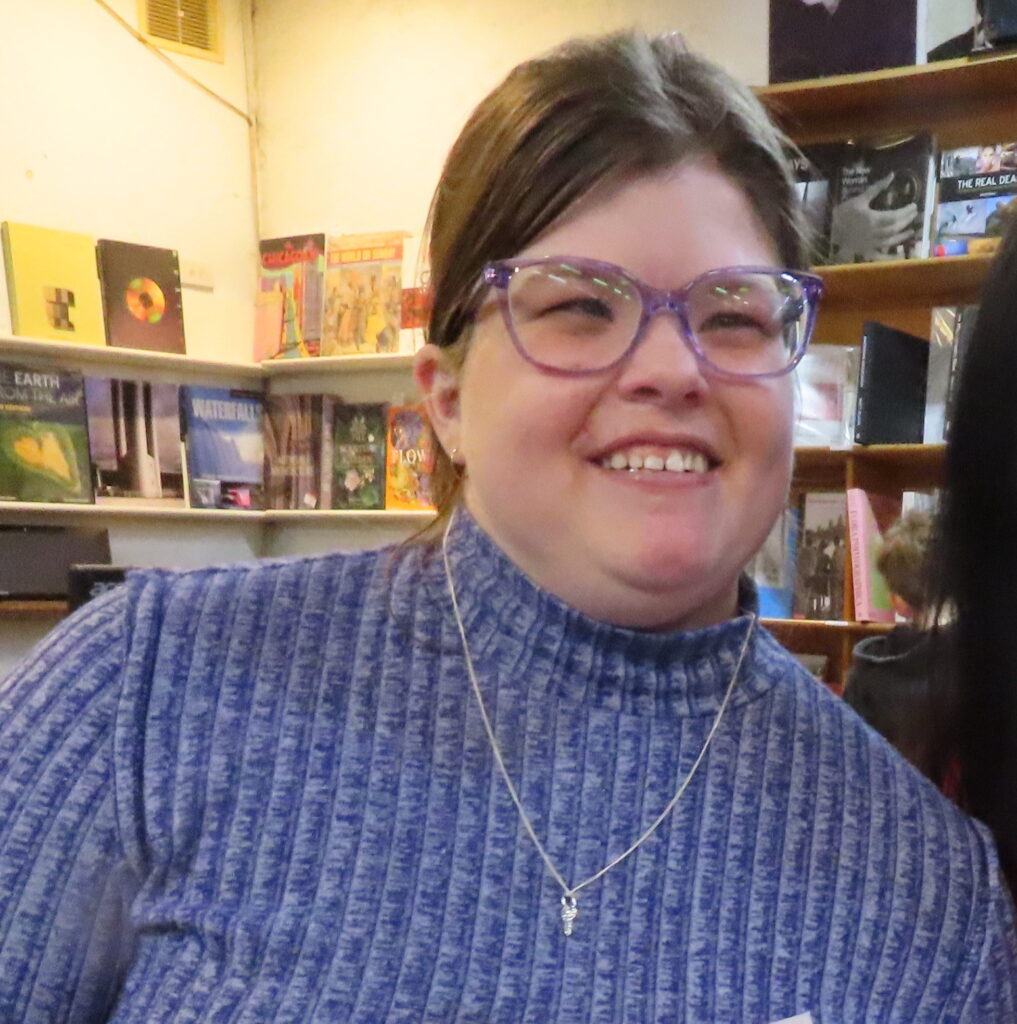By Ashleigh Meikle
Themes of ableism, internalised ableism and discrimination, discussions of mental health and anxiety.
I have been disabled since I was eighteen months old, but I only embraced that identity in my twenties after learning about invisible disabilities. I have epilepsy, asthma, neurofibromatosis type one, anxiety, and dysphagia, the last two recently diagnosed. My whole life I saw disability as something physical – being in a wheelchair or unable to do much because that was the message we were sent back in the nineties, and so I went through life thinking I didn’t have barriers because I didn’t need mobility aids and didn’t look disabled. Yet from sixteen onwards, as peers began to get jobs and learn to drive, it became apparent that I was different. It was only when circumstances forced me onto Newstart in 2012 (now JobSeeker) and into Disability Employment Services (DES) [CS1] that I learnt there was more to disability than a wheelchair. I have had to relearn a lot of things when it comes to disability and what it means for me and the wider disability community.
When I was growing up, disability wasn’t something that people spoke about, yet I saw it every time I went to the children’s hospital for scans and appointments as an outpatient, but it was never in the books or media I consumed, unless the character was there for pity. The one time I remember seeing it portrayed positively was in one of the Baby-sitter’s Club books, when Jessi babysits a Deaf boy and learns sign language. Or through Stacey and her diabetes – I identified with Stacey because like her, I was often at doctors or hospitals for something. Other than that, I don’t remember many disabled characters growing up. Especially ones whose disability wasn’t apparent because they ‘looked normal’, because it seemed that in those times, nobody understood invisible disabilities.
Since then, through voices like Carly Findlay and WWDA I have come to understand the spectrum of disability and the ways an inaccessible world discriminates against disabled people across the board. As a disabled woman, I have struggled to get jobs – whether disability is indirectly a factor is hard to know. I spent eight to nine years dealing with multiple DES consultants across three agencies and not one of them found me work. If they offered something, it was often something my GP and physio said I shouldn’t do, or they bullied me into saying yes to McDonalds, only to not do anything about it. Any work – whether it was a one-off job, freelance, or a short-term job, I found and got on my own. However, these services didn’t teach me to embrace my disabled identity and to find my community. Finding my community online was where I started to understand more. Yet despite this supportive community, my time with DES saw my mental health tank and where my anxiety manifested itself. It was like they wanted everyone who was disabled to fit into a neat little box so they could funnel us into the jobs they had with partners because the impression I got was that all disabled people are the same. I have always known this was the case, but this experience showed me that too many people have certain assumptions about disabled people that we need to work to dissolve.
Assumptions about disability – that it is only people who need wheelchairs or can’t walk or do anything – have caused the harm I have witnessed in how society views disabled people and how DES deals with us. Because I can walk, most people assume I’m not disabled and apart from those who know me, are confused when I tell them I’m not allowed to drive, and this has caused me to lose out on jobs that will be ideal for me. I have found these assumptions to be confronting and hurtful and this has also affected my mental health. Because DES never considered accessibility and inclusion during my time with them, I turned to other avenues to embrace my disabled identity and have slowly found people I can talk to about it, many of whom are disabled and one or two friends who accept me for who I am, who don’t question my identity. From having no support or representation, to going through eight years of no help from DES, to now, when I have found my community and either found or created all the opportunities I’ve had so far, I am a proud disabled woman who will continue to work towards my goals and embrace my identity forever.
Ashleigh is a disabled writer and reviewer at her blog, The Book Muse (https://ashleighmeikle.com.au), has worked with the ABC, and is a dedicated volunteer in her local community. She has had a range of articles and stories published and writes across a wide range of areas when she can. Ashleigh also writes for ArtsHub from time to time in addition to running her own blog.
Ashleigh can be found at! @TheBookMuse1 on Twitter and Instagram, and as Ashleigh Meikle on Facebook and LinkedIn.

